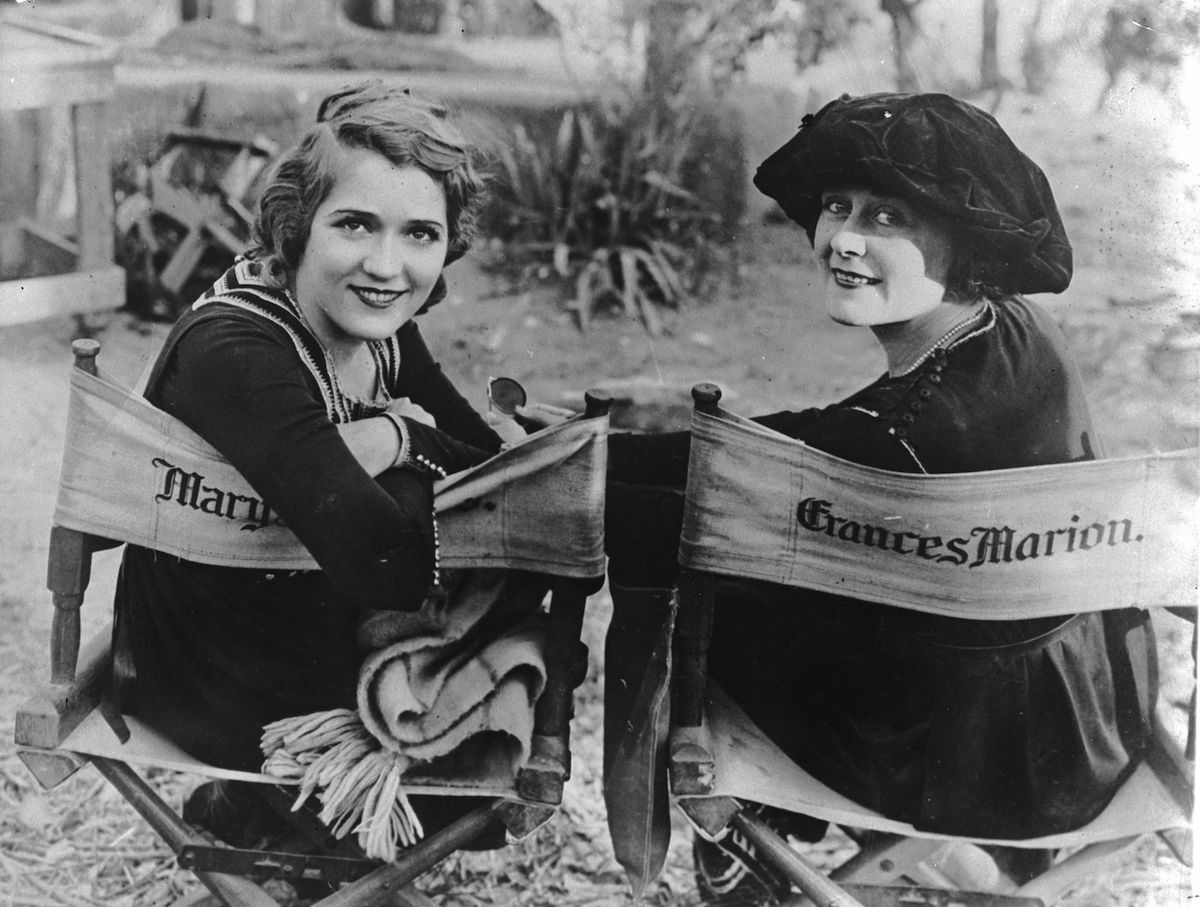
Pickford. Harlow. Valentino. Garbo. A single script by early Hollywood’s highest-paid screenwriter could make or break any of their careers—and for over 20 years, that screenwriter was a woman, Frances Marion. Though women face many barriers as screenwriters today—they wrote only 11% of 2014’s top 250 films—Marion was one of Hollywood’s most influential writers between 1915 and the late 1930s. She helped define Hollywood’s Golden Age, and the language of film itself.
Maybe Frances Marion Owens was destined to reach greatness: After all, she was named after a famous Revolutionary War hero. As a young woman, she dabbled in modeling and acting, before working as a commercial artist and a war correspondent and eventually making her way to Hollywood. Her “terrifically feminine” looks won her acting work and a revised name for the screen, but she was more interested in what went on behind the camera. She became the assistant to Lois Weber, the most successful female director in Hollywood at the time, and began to learn every aspect of film production.
The more established world of theatrical show business was a man’s world, but then-burgeoning Hollywood was different. In the pre-studio era, women were involved in all kinds of activities on set. Many movies didn’t have screenplays at all. Instead, informal “scenarios” acted as a sort of road map for directors and actors. Since life on set was relatively relaxed, women could—and did—define roles for themselves in the new medium. They directed, produced and edited hundreds of silent movies. But nowhere did they define the feel of early film as much as through the stories they imagined for the silent screen. In fact, more than half of all silent films are thought to have been written by women.
Hollywood’s women benefited from close female friendships in the industry, and Marion was no exception. When she struck up a friendship with silent film star Mary Pickford, her life changed forever. Their chemistry was so strong that it was dubbed “spontaneous combustion” by a friend, and Pickford hired Marion as her exclusive screenwriter.
Marion built her reputation from there. By the mid 1920s, she was working for MGM and earning $3,000 a week—the equivalent of over $40,000 today. People began to attribute MGM’s success to her screenwriting prowess. And Marion was nothing if not prolific. She wrote over 300 films and became known for her great film adaptations, writing both scenarios and formal screenplays in a career ranging from silent film through the talkie era. From Camille to Anna Christie to Dinner at Eight (which she co-wrote with Herman Mankiewicz), Marion knew how to write a movie and get paid for her talents.
Though she won two Academy Awards, for her screenplays of The Big House and The Champ, Marion always pushed for more creative control. She almost singlehandedly resurrected the career of Marie Dressler, an actress who had been dismissed as aging and irrelevant. And she spoke out about studio pressure to censor her films.
Then, she walked away. She grew disillusioned with the more structured, restrictive environment that Hollywood was becoming, and by the late 1930s, she claimed that being a screenwriter was “like writing on the sand with the wind blowing” — a profession that offered no creative control and little credit for anyone less than a writer-producer.
Today, the woman who literally wrote the book on Hollywood screenwriting—her 1937 How to Write and Sell Film Stories was one of the first guides of its kind—is no longer well known. As the years have passed and women have lost pay equity and representation within the industry, Marion’s fame has faded, too. The woman who gave Hollywood its voice may not be remembered today, but her legacy lives in every story that’s brought to the screen.
More Must-Reads from TIME
- Why Trump’s Message Worked on Latino Men
- What Trump’s Win Could Mean for Housing
- The 100 Must-Read Books of 2024
- Sleep Doctors Share the 1 Tip That’s Changed Their Lives
- Column: Let’s Bring Back Romance
- What It’s Like to Have Long COVID As a Kid
- FX’s Say Nothing Is the Must-Watch Political Thriller of 2024
- Merle Bombardieri Is Helping People Make the Baby Decision
Contact us at letters@time.com